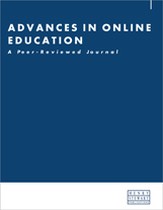Digital storytelling: A relational pedagogic approach to rebuilding hybrid places for creativity, equity and community building in a crisis
Abstract
The COVID-19 pandemic had an impact on human flourishing worldwide as in-person teaching and learning provision within universities and schools rapidly shifted online. This exposed challenges as staff and students worked from home. Digital competences in online pedagogy differed across teaching teams, access to digital equipment, technical and social infrastructure was limited, specific fields of study had different requirements, and physical distancing measures heightened social isolation. ‘The Ship of Theseus’ is a thought experiment that poses the question: if every part of a ship is replaced, is it still the same ship? The authors apply the Ship of Theseus to reflect on experiences of rebuilding and reimagining teaching and learning online in a crisis. This intergenerational, practice-informed case study considers a strategic role for digital storytelling on the Digital Media and Communications BSc (DMC) at Manchester Metropolitan University (MMU) during the COVID-19 pandemic. A student-led component was supported by two research internships as part of MMU’s extracurricular programme, Rise. Catering specifically for students with culturally diverse backgrounds, Rise enables students to enhance their degree profile through activities such as volunteering, self-study on other learning platforms, work experience or research projects. The two student co-authors cooperated as peers, and as part of the research team in order to critique and reimagine curriculum content delivery in a crisis. This was informed by the literature and student co-authors’ critical reflections on their lived experience of pandemic online teaching and learning and prototyping an equitable alternative to build a creative community that co-imagines different desires and visions of the future from an inequitable present. In applying the Ship of Theseus to the use of digital storytelling to support online teaching and learning, we offer active learning strategies to reinvigorate relational pedagogic approaches that position online learning within wider debates to transform higher education. The authors suggest that digital storytelling can rebuild social connections and transform online spaces into hybrid places where meaningful and creative playfulness can become anchored within practice. We conclude that designing for equity by extending digital storytelling communities of practice beyond university learning environments provides alternative spaces that potentially transform how learners respond equitably to global crises together. While new forms of digital storytelling, cooperation, co-learning and community building are invaluable, the rapid convergence of digital technologies and media by industry warrants active stewarding to address emergent digital media ethical challenges, including accessibility, privacy and equity.
The full article is available to subscribers to this journal (subscription is free).
Author's Biography
Zoe Parker Moon is an educator exploring innovative and interdisciplinary methods for visual storytelling. Her research focus is on collaborative and inclusive teaching in a blended world. Zoe is an Associate Fellow of Higher Education with an artist’s practice in experimental video and non-linear practices.
Polly Palmerini is an educator, artist and curator with a research focus on collaborative practice, play in education and visual storytelling. Funded by Manchester International Festival as part of the Manchester Independents, she delivered research project ‘Museum of Half Truths’ at Contact Theatre in late 2020, involving artists and communities in a reflective response to the COVID-19 pandemic.
Jen Drayton is a digital media and communications graduate working as a freelance photographer and EU Chief Operating Officer for De Lunaria, a start-up sportswear equestrian brand. Jen has expertise in content production and social media management.
Rob Noon works as Communications Director within the Co-operative movement. They are interested in digital storytelling as a tool for social justice.
Kayanna Gibson is an account executive with Havas Lynx Group, UK, where she plays a pivotal role in creating impactful healthcare marketing initiatives, currently focused on driving positive change and empowering people living with HIV. Her professional experience spans marketing, tourism and healthcare. During her time at Manchester Metropolitan University, Kayanna worked as a digital content producer, creating engaging videos distributed across various social media platforms for MMU’s marketing campaigns. Originating from the beautiful Turks and Caicos Islands, Kayanna represented her country as a Junior Minister of Tourism at the Caribbean Tourism Organisation (CTO) state Industry Conference.
Lisa Gold is a storyteller and documentarian. Her practice-led research explores the creative application of digital technology in narrative contexts and their effect on the audience. Lisa leads the Telling Tales International Film and Audio Documentary Festival.
Erinma Ochu is a neuroscientist, storyteller and filmmaker with a transdisciplinary research practice focused on creating immersive and participatory experiences to co-imagine equitable life on a warming planet. With a background in commissioning, curation and digital production, Erinma is an Associate Fellow of Higher Education specialising in flexible digital online learning, an alumna of Manchester International Festival/Jerwood Fellowship, alumna of Stuart Hall Scholars and Fellows Network and an EAVE graduate and previously Senior Lecturer in Digital Media and Communications at Manchester Metropolitan University. Erinma is co-editor of Emerald Press book series, Digital Materialities and Sustainable Futures.
Citation
Parker Moon, Zoe, Palmerini, Polly, Drayton, Jen, Noon, Rob, Gibson, Kayanna, Gold, Lisa and Ochu, Erinma (2023, September 1). Digital storytelling: A relational pedagogic approach to rebuilding hybrid places for creativity, equity and community building in a crisis. In the Advances in Online Education: A Peer-Reviewed Journal, Volume 2, Issue 1. https://doi.org/10.69554/RNHC7441.Publications LLP
